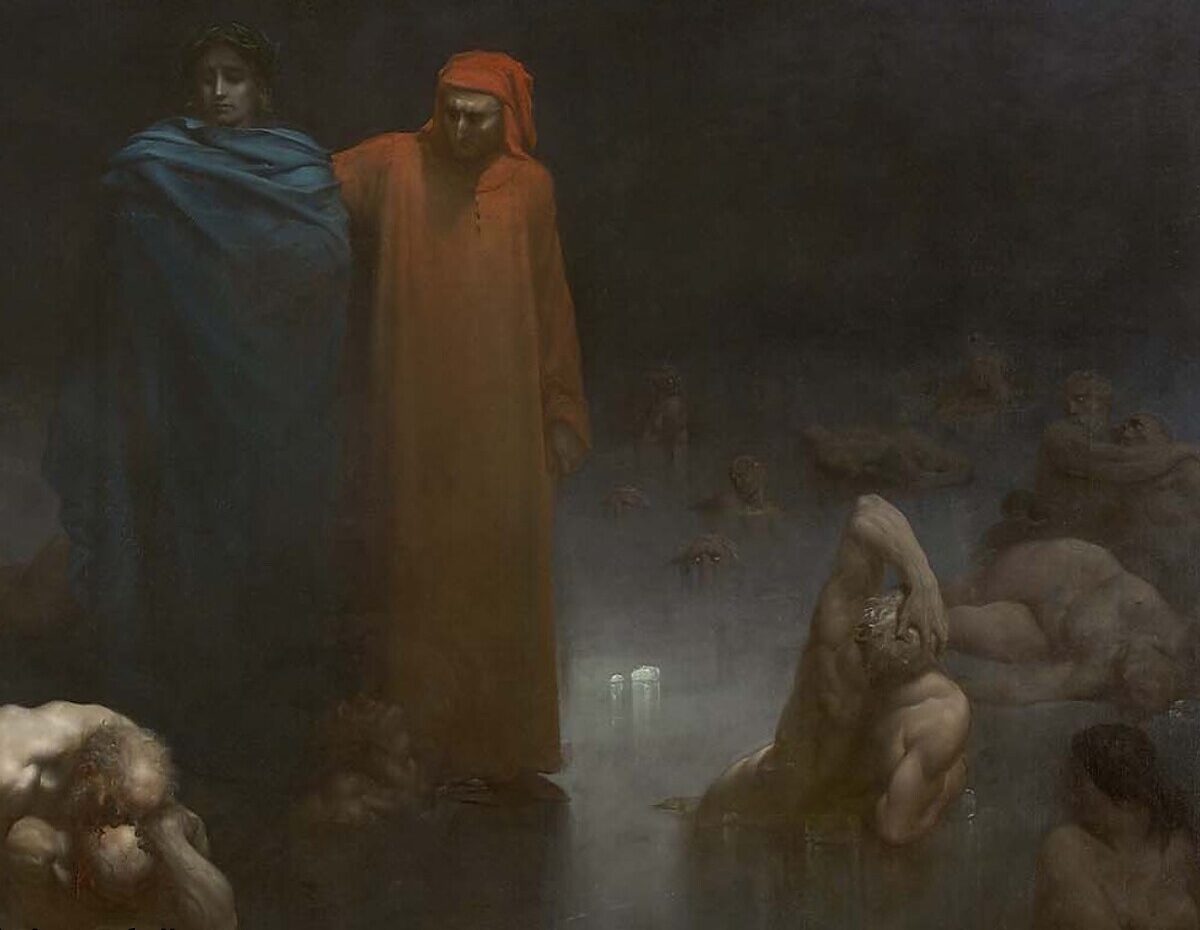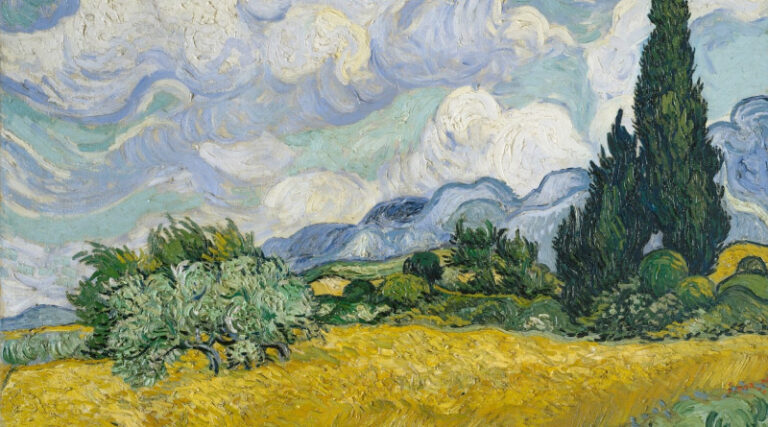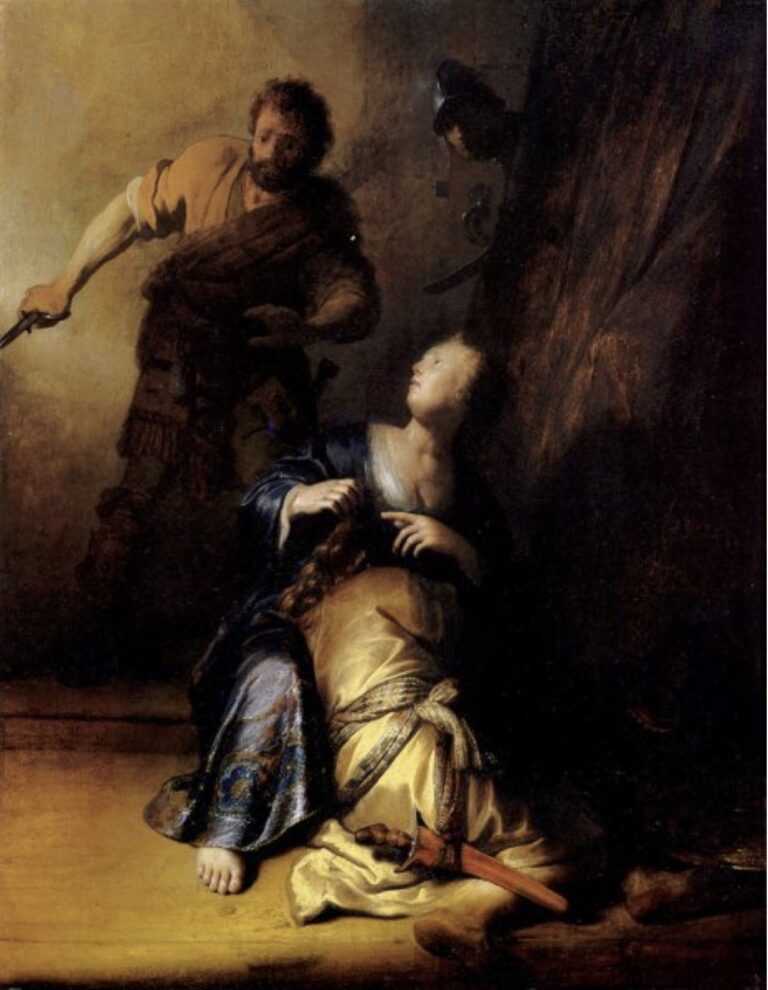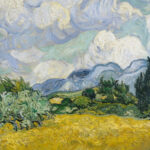“In me there was no good; the more I reflect, the more I see my heart was wholly cold; so let us leave these shades and speak no more of them. For you shall see the sorrowful souls of those who, having lost the good of intellect, put their trust in nothing.” (Inferno III, 58-63)
Dante’s Divine Comedy
Dante Alighieri wrote the famous masterpiece The Divine Comedy in early 14th century Italy. The first part, Inferno, opens on the evening of Good Friday in the year 1300, with Dante lost in a dark forest. As he attempts to climb a mountain, three beasts block him; a leopard representing malice and fraud, a lion representing violence and ambition, and a she-wolf representing incontinence and greed.
The spirit of the Roman poet Virgil appears to him and tells him that he must take another path out of the forest. Virgil becomes Dante’s guide through the nine circles of Hell, where they encounter various sinners and punishments corresponding to their sins. Dante’s journey through Hell ultimately leads him to the center of Hell, where he finds Satan frozen in ice. The nine circles of Hell start with Limbo, then progresses to lust, gluttony, greed, anger, heresy, violence, fraud, and treachery.
After Dante and Virgil complete their journey through Hell, they begin their ascent through Purgatory, the second part of the Divine Comedy. Purgatory is a mountain divided into seven terraces, each representing one of the seven deadly sins. In each terrace, the souls who have committed that particular sin are punished, but they are also given the opportunity to repent and purify themselves. Dante meets many souls on his journey, including his beloved Beatrice, who serves as his guide through the final stages of his journey. In Purgatory, Dante explores themes such as redemption, the nature of sin, and the importance of free will.
The third and final part of the Divine Comedy is Paradiso, the realm of Heaven. In Paradiso, Dante is guided by Beatrice and meets many saints and angels, including St. Bernard of Clairvaux, who helps him to reach the final vision of God. Throughout Paradiso, Dante explores themes such as the nature of God, the importance of faith, and the ultimate goal of human existence. The poem ends with Dante’s vision of the divine light and his ultimate union with God. Throughout The Divine Comedy, Dante uses poetry to describe God’s judgment, Heaven, and Hell, as well as topics such as the perfection of God’s justice and grace. Dante was a devout Catholic, and his writings reflect his religious beliefs and understanding of Rome’s teachings.
Henry Wadsworth Longfellow, the famous 19th-century American poet, was motivated to translate Dante’s Divine Comedy after a trip to Italy in 1829. Longfellow spent years studying Italian and other European languages and worked on his translation of the Divine Comedy for over a decade. His translation of the Divine Comedy was published in the United States in 1867, becoming one of the most popular and influential translations of the poem in the English-speaking world.
Here is a link for Longfellow’s translation of the complete Divine Comedy.
But what is the Bible’s position on these matters?
Judgment According to the Bible
Faithful to the Catholic beliefs of the time, Dante presents Limbo as the destination for virtuous non-Christians and unbaptized infants, where there is no punishment but separation from God. Limbo, however, was eliminated in 1992, is never discussed in the Bible, and was addressed in an earlier post which can be reviewed here.
Also, true to Roman beliefs, Dante illustrates Purgatory as an intermediary place of second chances where sinners are given the opportunity to repent and purify themselves or, through prayers and indulgences from other sinners, gain release. Again, Purgatory is not mentioned in the Bible and was created in response to a comment in the Apocrypha’s 2nd Maccabees. It is also discussed in a separate post which can be examined here.
As colorful and poetic as the Divine Comedy is, understanding God’s position on judgment is critical.
– No one is condemned because of one or more sins per se; rejecting Jesus Christ condemns. This point is illustrated in John 3:18, where the Bible states, “He who believes in Him is not judged; he who does not believe has been judged already, because he has not believed in the name of the only begotten Son of God.” This is also reiterated in Matthew 10:32-33: “Therefore everyone who confesses Me before men, I will also confess him before My Father who is in Heaven. But whoever denies Me before men, I will also deny him before My Father who is in Heaven.” Finally, Christ Himself declares the qualifications for salvation in Mark 1:5, where He states, “The time is fulfilled, and the kingdom of God is at hand; repent and believe in the gospel.”
– Although the levels of Hell in the Divine Comedy relate to categories of sin like lust, gluttony, and greed, the Bible also describes levels of punishment according to the denial of Jesus Christ as Matthew 11:20-24 illustrates, “Then He began to denounce the cities in which most of His miracles were done because they did not repent. ‘Woe to you, Chorazin! Woe to you, Bethsaida! For if the miracles had occurred in Tyre and Sidon which occurred in you, they would have repented long ago in sackcloth and ashes. Nevertheless I say to you, it will be more tolerable for Tyre and Sidon in the day of judgment than for you. And you, Capernaum, will not be exalted to Heaven, will you? You will descend to Hades; for if the miracles had occurred in Sodom which occurred in you, it would have remained to this day. Nevertheless I say to you that it will be more tolerable for the land of Sodom in the day of judgment, than for you.’”
– We are all unrighteous sinners, yet we are redeemed from our sinful past via the blood of Christ, not by our merit. This is explained in 1 Corinthians 6:9-11 where Paul announces, “Or do you not know that the unrighteous will not inherit the kingdom of God? Do not be deceived; neither fornicators, nor idolaters, nor adulterers, nor effeminate, nor homosexuals, nor thieves, nor the covetous, nor drunkards, nor revilers, nor swindlers, will inherit the kingdom of God. Such were some of you; but you were washed, but you were sanctified, but you were justified in the name of the Lord Jesus Christ and in the Spirit of our God.”
– Finally, although believers can still sin, they cannot continue to live an unrighteous lifestyle of sin and will produce good works as a result of their justification unto salvation. 1 John 3:9 speaks to the inability to continue to live a sinful life where he states, “No one who is born of God practices sin, because His [Christ’s] seed abides in him; and he cannot sin, because he is born of God.” And Ephesians 2:10 talks about good works as a product of salvation when it declares, “For we are His workmanship, created in Christ Jesus for good works, which God prepared beforehand so that we would walk in them.”
The sum of these verses demonstrates that neither our good works nor lack of evil works merit Heaven. We are all sinners, but those who believe and repent will be saved by the mercy of God, cease to continue an unrighteous lifestyle, and produce good works. Those who reject Christ, however, will be punished commensurate with their evil deeds.
But when is God’s judgment?
The Bible address that in Hebrews 9:27, “And inasmuch as it is appointed for men to die once and after this comes judgment.









